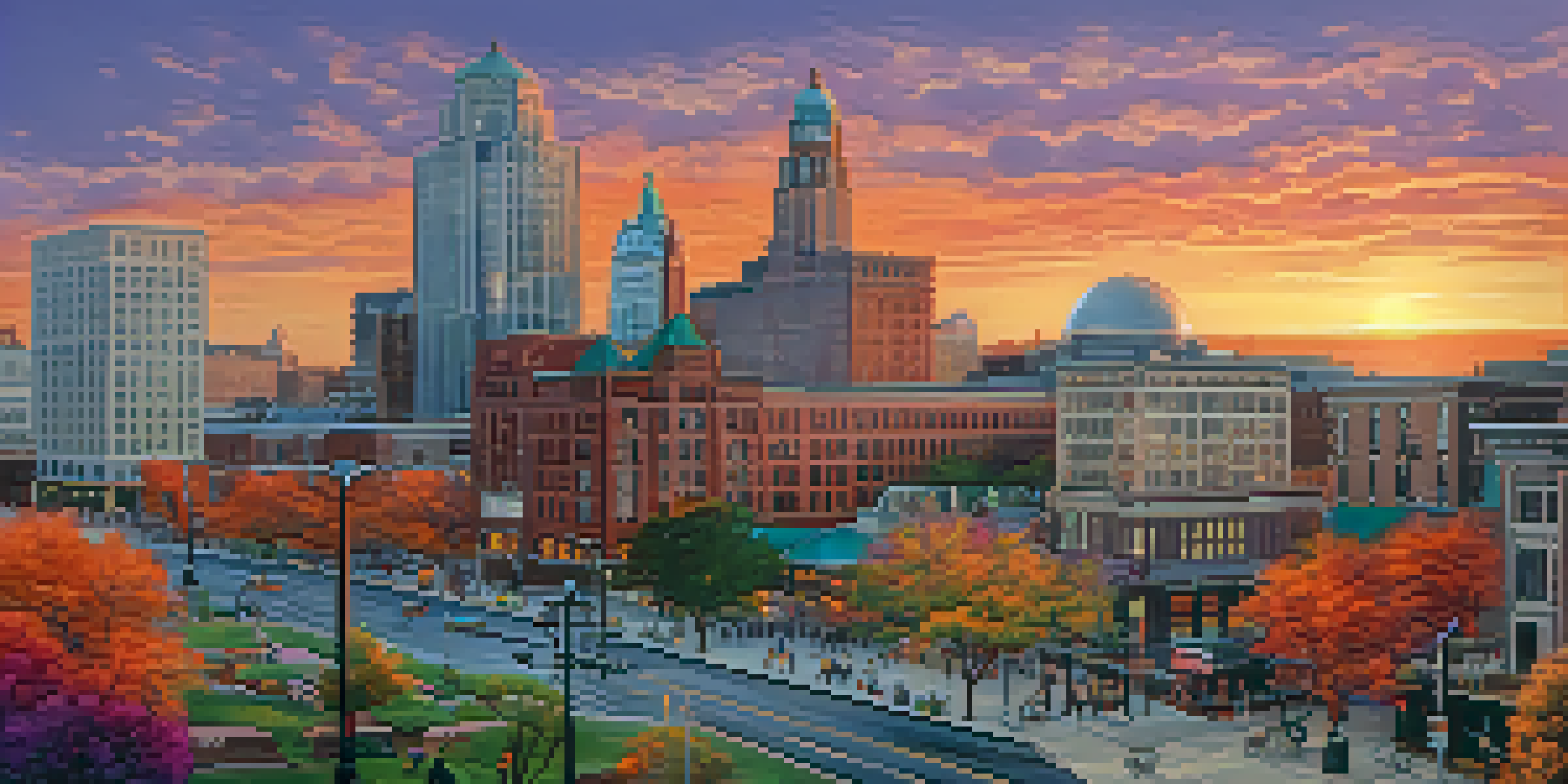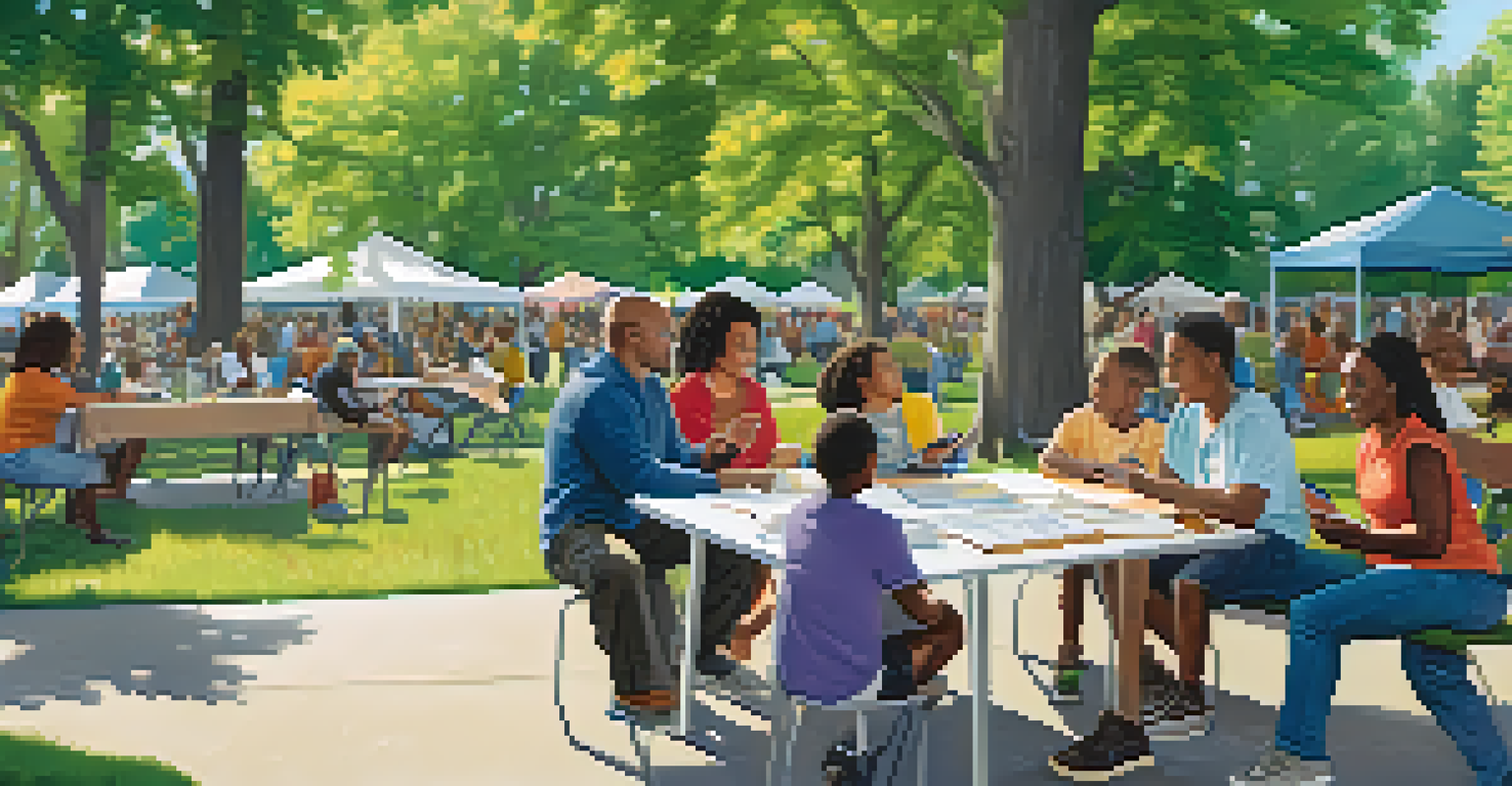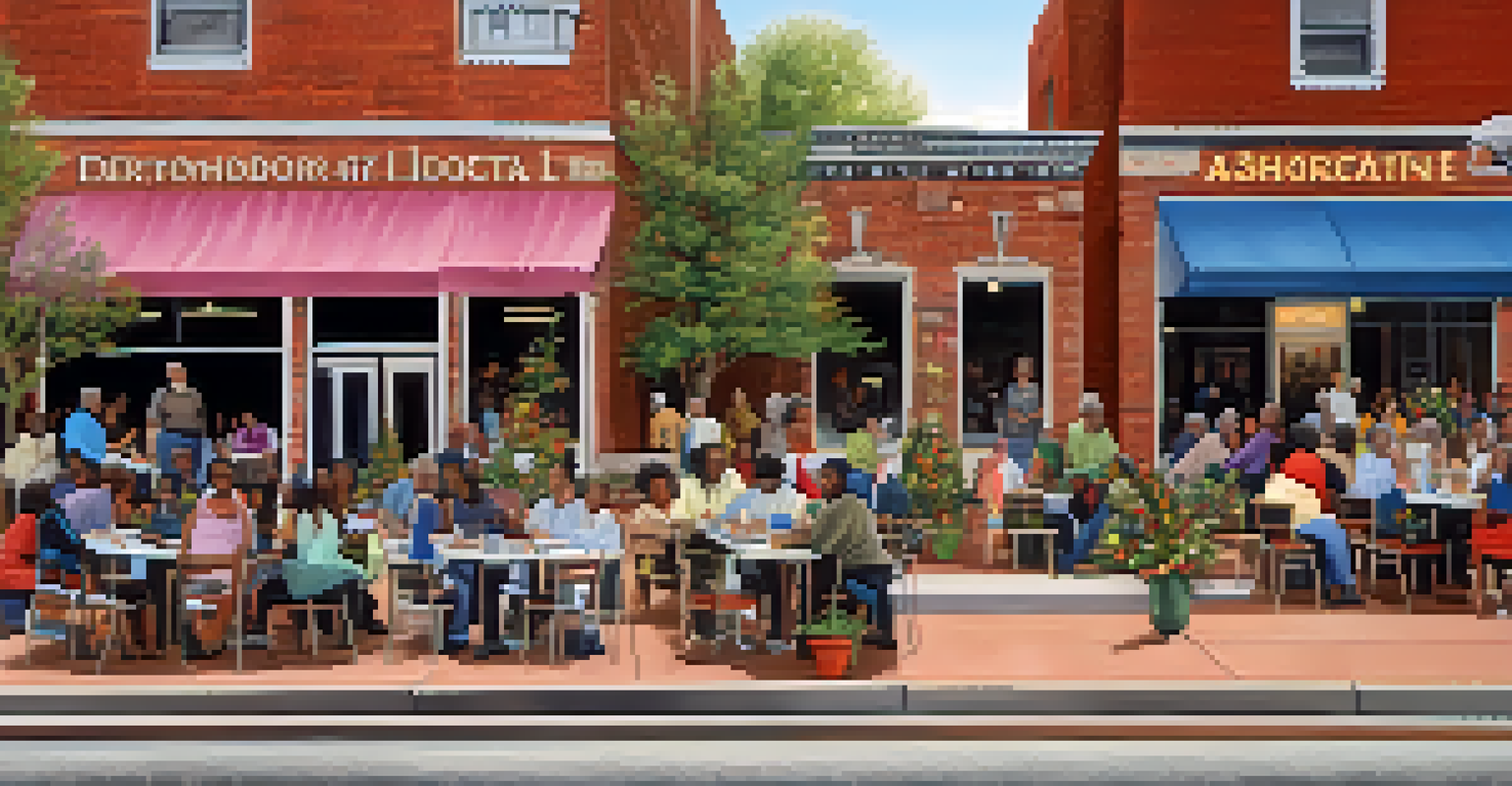Understanding Local Government Roles in Detroit's Community

The Structure of Local Government in Detroit
Detroit's local government is structured to serve its diverse community effectively. It consists of various branches, including the mayor's office, city council, and several departments that manage specific functions like public safety and urban development. Understanding this structure helps residents navigate services and advocate for their needs.
The best way to predict the future is to create it.
At the helm is the mayor, who oversees the executive functions and implements policies set by the city council. The city council, made up of elected representatives, plays a crucial role in legislation, budget approval, and community representation. This relationship between the mayor and city council is essential for addressing local issues.
Additionally, Detroit has several agencies and departments, such as the Department of Neighborhoods, that work directly with the community. These entities provide resources and support for residents, making local government more accessible. By knowing who to contact for specific concerns, citizens can engage more effectively with their government.
Key Responsibilities of Detroit's Local Government
Local government in Detroit is responsible for a variety of essential services that directly impact residents' daily lives. These responsibilities include maintaining public safety, managing waste collection, and ensuring infrastructure is up to standard. Each of these functions plays a vital role in creating a livable community.

Public safety, for instance, encompasses the police and fire departments, which work tirelessly to keep residents safe. Meanwhile, the Department of Public Works handles waste management and street maintenance, ensuring the city remains clean and functional. By fulfilling these responsibilities, local government fosters a sense of security and pride among residents.
Detroit's Local Government Structure
Detroit's local government consists of the mayor, city council, and various departments that work together to serve the community effectively.
Moreover, local government is also involved in economic development initiatives. These programs aim to attract businesses and create jobs, which in turn supports the community's growth. This multifaceted approach to governance ensures that Detroit not only meets immediate needs but also plans for a prosperous future.
Engaging with Local Government: How Residents Can Participate
Engagement with local government is crucial for residents who wish to influence decisions that affect their lives. Detroit encourages community participation through public meetings, advisory boards, and various outreach programs. These platforms provide opportunities for residents to voice their concerns and ideas directly to decision-makers.
Government’s first duty is to protect the people, not run their lives.
One way residents can engage is by attending city council meetings, where they can share their thoughts on proposed legislation. Additionally, community forums allow for broader discussions on issues such as neighborhood safety or housing developments. By participating in these events, citizens can help shape policies that reflect their community’s needs.
Moreover, local government often uses digital platforms to connect with residents. Online surveys, social media updates, and interactive websites make it easier for citizens to stay informed and provide feedback. This level of accessibility empowers residents to take an active role in their local government.
The Role of Neighborhood Associations in Detroit
Neighborhood associations in Detroit play a vital role in fostering community engagement and ensuring residents’ voices are heard. These grassroots organizations bring neighbors together to discuss local issues, organize events, and advocate for improvements. By working collectively, residents can amplify their impact on local government initiatives.
These associations often serve as a bridge between the community and local government officials. They can facilitate communication, helping to ensure that residents' concerns are represented in decision-making processes. This collaboration can lead to more effective solutions that address the unique needs of each neighborhood.
Engagement Opportunities for Residents
Residents can participate in local governance through public meetings, community forums, and digital platforms to voice their concerns and ideas.
Additionally, neighborhood associations can provide valuable resources and support for residents. They often organize workshops, host social events, and connect members with local services. This sense of community not only strengthens neighborhood ties but also enhances overall engagement with local government.
Understanding Local Government Funding in Detroit
Funding is a critical aspect of how local government operates in Detroit. The city's budget is primarily supported by taxes, grants, and various revenue sources that fund essential services. Understanding where this money comes from helps residents appreciate the challenges and opportunities the government faces.
Property taxes make up a significant portion of the city's revenue, which is used for public services like education, public safety, and infrastructure maintenance. Additionally, state and federal grants can provide funding for specific projects, such as community development or emergency services. This financial landscape shapes what local government can achieve for its residents.
Moreover, local government must also manage its budget effectively to address the needs of Detroit's diverse communities. Budgeting processes often involve public input, allowing residents to prioritize spending on services that matter most to them. This transparency helps build trust between the government and the community.
Challenges Facing Local Government in Detroit
Despite its important role, Detroit's local government faces several challenges that can impact its effectiveness. Economic issues, such as budget constraints and declining revenue, can hinder service delivery and infrastructure improvements. Understanding these challenges is key to fostering a more resilient community.
Moreover, issues like population decline and urban blight complicate the government's ability to meet residents' needs. As neighborhoods change, local officials must adapt their strategies to address shifting demographics and community dynamics. This requires innovative thinking and community collaboration.
Challenges Facing Local Governance
Detroit's local government grapples with economic issues, population decline, and urban blight, requiring innovative solutions and community collaboration.
To overcome these challenges, local government must prioritize transparency and communication with residents. Engaging the community in problem-solving and decision-making can lead to more sustainable solutions. By working together, Detroit can tackle these obstacles and build a brighter future for all its citizens.
Future Directions for Local Government in Detroit
Looking ahead, local government in Detroit is focusing on innovative solutions to address current challenges and enhance community well-being. Initiatives centered on sustainability, economic development, and public health are gaining momentum. These efforts aim to create a more vibrant and resilient city.
For instance, the city is exploring green infrastructure projects that can improve urban environments while promoting economic growth. By investing in parks, green spaces, and eco-friendly developments, local government seeks to enhance the quality of life for residents. This approach not only addresses environmental issues but also fosters community pride.

Additionally, local government is increasingly prioritizing technology and data-driven decision-making. By utilizing data analytics, officials can better understand community needs and streamline services. This forward-thinking approach is vital for ensuring that Detroit remains a thriving city for generations to come.